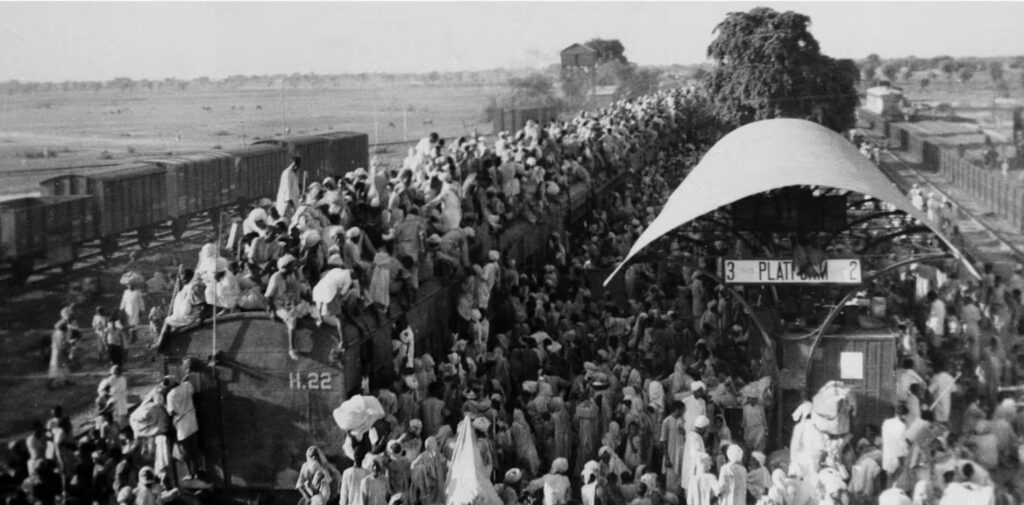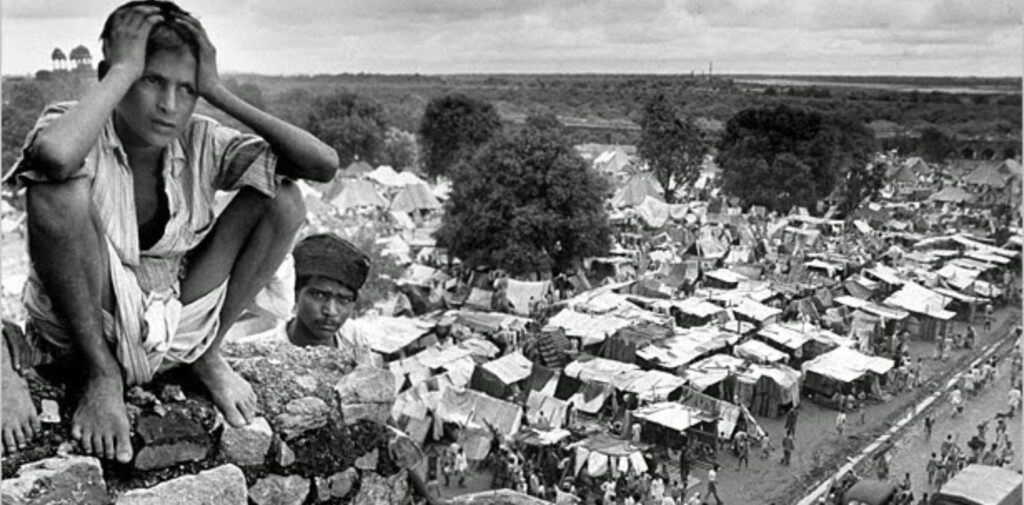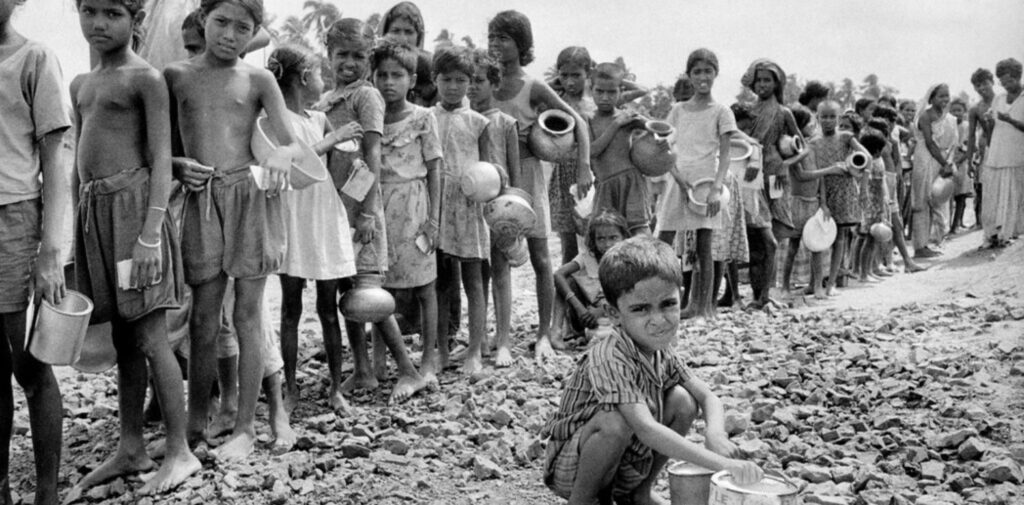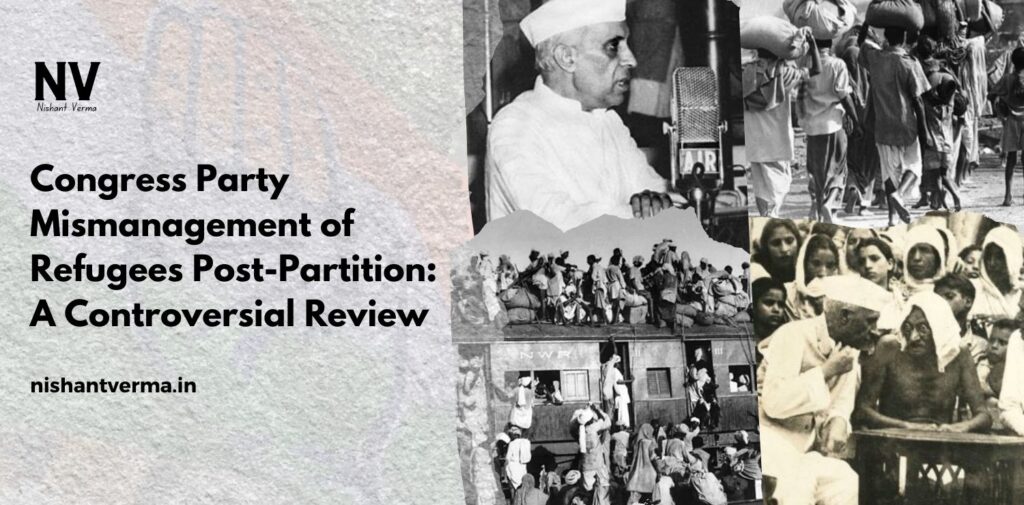The Partition of India in 1947, one of the most significant and traumatic events in the country’s history, marked the division of British India into two independent nations: India and Pakistan. While this separation was supposed to bring peace, it instead unleashed one of the largest mass migrations in human history, with millions of refugees crossing borders to escape violence, displacement, and uncertainty. In the chaos that followed, one institution failed to manage the crisis effectively – the Congress Party.
Under the leadership of Jawaharlal Nehru, the Congress Party was in power at the time of Partition, and its handling of the refugee crisis has been widely criticized. The mismanagement not only caused immense suffering for millions but also led to long-term consequences for India’s social fabric, economic development, and political stability. This article takes a controversial stance by critically examining the Congress Party’s role in the mishandling of the refugee crisis after Partition.
The Scale of the Crisis
The Partition of India was a traumatic event that led to the displacement of over 15 million people. The mass migration resulted in religious riots, communal violence, and the division of families. Hindus and Sikhs fled Pakistan, while Muslims crossed over to Pakistan from India. In this turmoil, the refugees faced severe hardships such as loss of property, identity, and even their lives. What followed was an unprecedented humanitarian crisis, and it was expected that the Indian government would step in to provide aid, resettlement, and rehabilitation. However, the Congress Party’s management of this situation was woefully inadequate.

Lack of Proper Planning
One of the most glaring failures of Congress during this period was the lack of proper planning for the resettlement of refugees. In the chaos of Partition, it was clear that millions would be displaced and forced to start anew in unfamiliar territories. Yet, the Congress government did little to prepare for this massive upheaval. There was no coherent policy for housing, employment, or the protection of refugees. The government’s response was sluggish, and bureaucratic inefficiency hindered any meaningful action.
The Congress Party had the opportunity to lay the groundwork for refugee rehabilitation in the years leading up to Partition. However, it chose to prioritize political negotiations and the process of independence over the welfare of the people who would suffer the most from the division. By the time the refugees began flooding into India, it was too late to develop an effective plan. The Congress government had failed to foresee the enormity of the task that lay ahead.
Inadequate Relief Measures
The relief measures taken by Congress were grossly inadequate, and the situation for refugees only worsened. The government set up temporary camps for refugees, but these camps were poorly managed, overcrowded, and lacked basic amenities. The refugees lived in deplorable conditions with no access to clean water, sanitation, or adequate food supplies. Many refugees, especially women and children, suffered from diseases, malnutrition, and exhaustion.
The Congress Party, at the time, claimed to be committed to the welfare of the displaced people. However, their actions suggested otherwise. Relief measures were often delayed or incomplete, and the government’s efforts to provide healthcare, food, and shelter were inadequate in comparison to the magnitude of the crisis. The response from Congress leaders was slow, and at times, it seemed as though they were indifferent to the suffering of the refugees.
Political Priorities Over Refugee Welfare
While millions of refugees were struggling to survive, the Congress Party seemed to prioritize political concerns over the welfare of the people. Jawaharlal Nehru and other Congress leaders were preoccupied with consolidating power, handling the aftermath of Partition, and managing the new nation’s foreign policy. There was little focus on the refugee crisis, and the issues that refugees faced were treated as secondary to political negotiations and governance.
The Congress Party, which was supposed to represent all Indians, failed to take adequate responsibility for the people who were most affected by the Partition. Instead of dealing with the immediate needs of the refugees, the government wasted time on irrelevant political concerns. For instance, leaders like Nehru were concerned with maintaining cordial relationships with Pakistan and focusing on the newly independent state’s international standing, while the country’s own citizens were left to fend for themselves.

Failure to Protect Refugees’ Rights
Another major failure of Congress in the post-Partition period was its inability to protect the rights of refugees. Many refugees, especially women, faced horrific violence and exploitation. The Congress Party failed to ensure their safety and dignity. The widespread violence against women, including abductions, rapes, and forced conversions, was a result of the state’s failure to intervene decisively. Refugee women were especially vulnerable, yet there was little effort from the Congress government to ensure their protection.
The Congress Party did not take adequate steps to investigate and punish those responsible for the violence against refugees. Political considerations took precedence over the safety and rights of the displaced population. This neglect only deepened the wounds caused by Partition, and the aftermath of violence and exploitation still haunts many families even today.
Mismanagement of Land and Resources
As refugees poured into India, the government needed to find ways to provide them with land, shelter, and livelihoods. But the Congress government failed to address the issue of land allocation in an organized and fair manner. Much of the land that was supposed to be given to refugees ended up in the hands of the wealthy or influential. In many cases, the refugees were either forced to settle in overcrowded camps or on barren land that was unsuitable for farming or habitation.
The lack of coordination between various government departments further exacerbated the problem. Refugees, particularly those from rural areas, were left without resources or jobs. The Congress government did little to create new opportunities for them. In fact, many refugees faced discrimination in terms of employment and social integration.
The Rise of Communalism
The Congress Party’s inability to address the refugee crisis also contributed to the rise of communal tensions in India. The arrival of millions of refugees, many of whom were traumatized by violence, heightened religious divisions. Congress’s failure to promote unity and inclusivity led to the growth of communal tensions. The government’s inability to integrate refugees into society effectively created an atmosphere of distrust, which was later exploited by other political groups. The refugee crisis, which could have been an opportunity for India to demonstrate its commitment to human rights, instead became a breeding ground for communal unrest.

Legacy of Congress Party Failure
The Congress Party’s failure to manage the refugee crisis post-Partition left a deep and lasting scar on India. The refugees were denied a fair chance at rehabilitation, and their struggles were ignored by the government. The Congress Party’s priorities were skewed, and its failure to act swiftly and decisively contributed to the chaos and suffering that followed.
In conclusion, the Congress Party’s mishandling of the refugee crisis after Partition was a colossal failure. The government’s lack of foresight, inefficient relief efforts, neglect of refugees’ rights, and prioritization of political concerns over the welfare of citizens led to unimaginable hardship for millions of people. The Congress Party’s actions—or lack thereof—serve as a reminder of the critical need for a government to put the welfare of its people above all else, especially in times of crisis.




